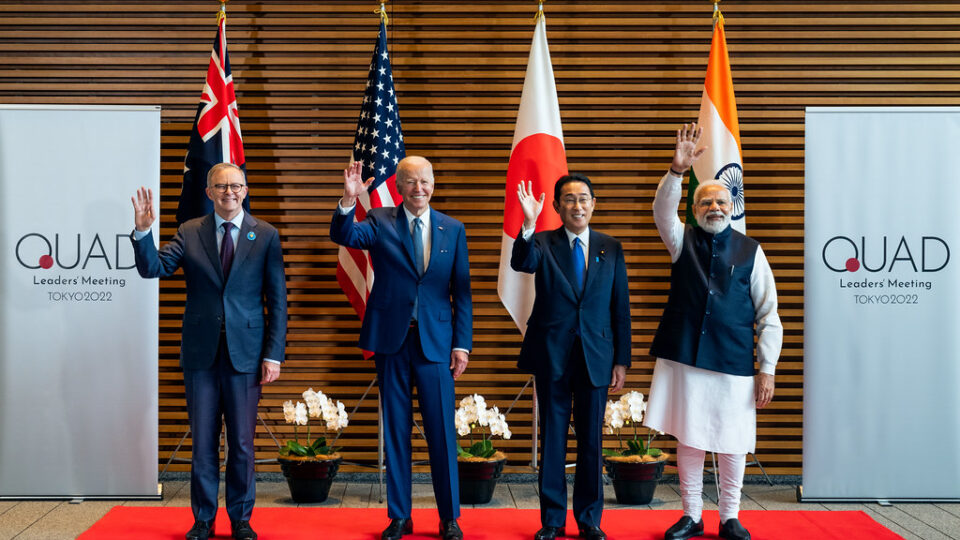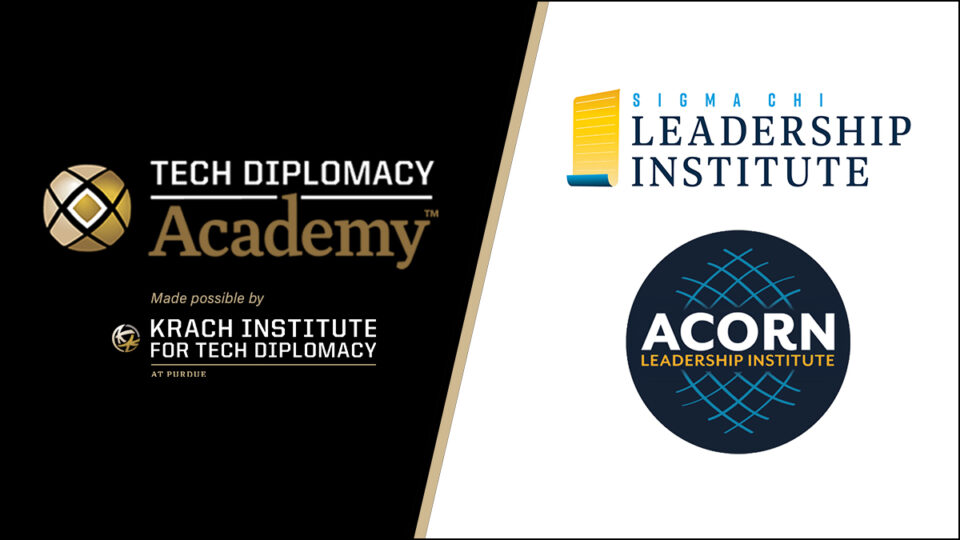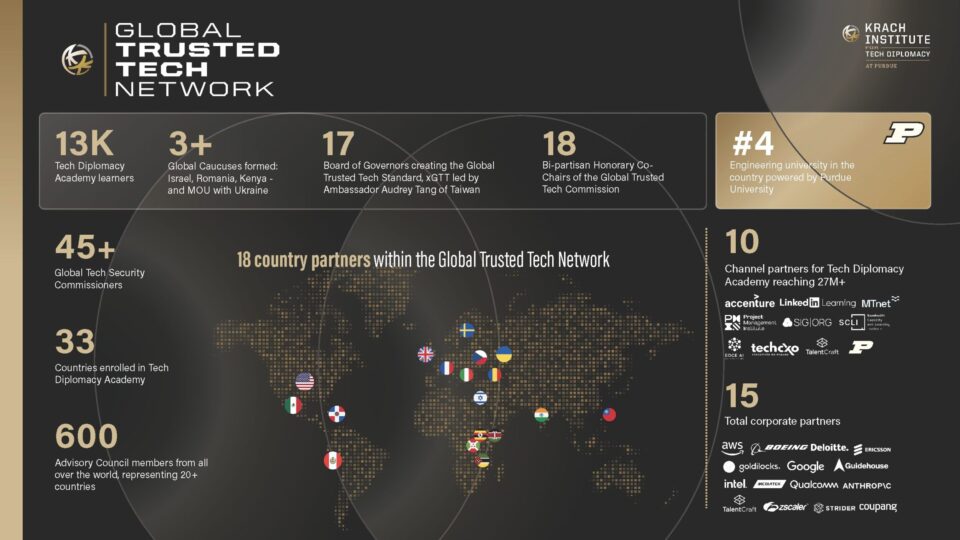U.S.-Japan Dialogue Should Develop a Blueprint to Advance Abe’s Vision for a Free and Open Indo-Pacific
Dr. Kaush Arha
07.28.22

The U.S.-Japan Economic Policy Consultative Meeting will convene this week in Washington D.C. President Biden and Prime Minister Fumio Kishida launched the Committee – Economic 2+2 – in January 2022. It is led by the U.S. secretaries of state and commerce and Japan’s ministers of foreign affairs and economy, trade and industry. The United States and Japan should use the occasion, coupled with growing bilateral military cooperation, to present a bold blueprint to advance the late Abe Shinzo’s vision for a Free & Open Indo-Pacific (FOIP).
Advancing FOIP constitutes the cornerstone of the U.S.-Japan policy to deter Chinese aggression. The Indo-Pacific is the most consequential region of the world, accounting for more than half of the global economy, commerce and population. A Free and Open Indo-Pacific is a bellwether for a free and open world. Consequently, the U.S.-Japan ministerial meeting should prepare a bold framework to be shared with Australia and India – the other two nations of the Indo-Pacific Quad – to firmly establish the primacy of the Free and Open Indo-Pacific in preserving global peace, prosperity and security.
In 2023, the Quad nations will host the world’s leaders in the Indo-Pacific: Japan will host the G7, India the G20, Australia the Quad Leaders, and the United States the Asia-Pacific Economic Cooperation (APEC). The U.S and Japan in concert with Australia and India should avail of this propitious constellation to coordinate actions across economic, security and public diplomacy domains to advance a Free and Open Indo-Pacific.
On economy, the U.S. and Japan as part of the Quad should facilitate increased global coordination and demonstrably contribute to increasing regional prosperity. To that end the G7 should be bolstered by bringing together the leading democratic economies of the Atlantic and the Indo-Pacific. In 2023, the G7 should grow into the G10 by including as formal members India, Australia and the European Union. The new G10 should commit to advancing FOIP as one of its primary goals.
Second, neither the U.S. nor Japan alone can counter and out-compete the extensive economic reach of the Communist China in the Indo-Pacific. The only credible answer lies in collectively binding the free and open economies of the region and the Quad together as a bulwark against Chinese state capitalism. This is achieved by translating the FOIP vision into a trusted trade arrangement. The United States, the world’s largest economy, must lead the effort for its own security, prosperity and the wellbeing of its workers and environment.
Regional trade arrangements are necessary to shore up supply chains and diversify the manufacturing of critical goods among like-minded nations. The United States, building upon the Indo-Pacific Economic Framework, may begin this process by focusing first on energy and the digital economy. The Indo-Pacific, unless integrated with the American economy, cannot sustain its freedom and openness.
On security, the U.S. and Japan with the Quad need to act on the lessons learned from NATO’s response to Russia’s invasion of Ukraine: In particular, the importance of timely sharing of intelligence, of munitions manufacturing and logistical capacities to sustain a protracted armed conflict. The AUKUS arrangement among the United States, the United Kingdom and Australia to build nuclear submarines in Australia is a promising start to build upon.
On intelligence, The Five Eyes – an intelligence alliance among Australia, Canada, New Zealand, the United Kingdom and the United States – should work to incorporate Japan as a member and forge a closer relationship with India. Continued collaboration with South Korea and France – two countries with key security interests in the region – is critical and should be bolstered.
On defense production, it is of utmost urgency for the U.S. and Japan to shore up Quad’s manufacturing capacity — from basic kit to advanced conventional armaments — in quantity and of quality. The growing China–Russia nexus impels the Quad and NATO to establish protocols for greater coordination and compatibility for information sharing and across armaments and supply lines. Quad defense standards should be aligned with NATO. Australia, Japan, and New Zealand need to bolster their manufacturing capacity for advanced armaments, and augment it with contributions from India, South Korea and Taiwan. India’s capacity to be the FOIP’s arsenal for low-cost conventional weapons should be fully explored. The Quad should develop a collective strategy to wean India from its reliance on cheap Russian armaments and make itself the supplier of choice for free nations.
On public diplomacy, Japan, in concert with other Quad members, may launch an Abe Shinzo FOIP Scholarship to facilitate a greater engagement and understanding among the youth of the Quad nations and other Indo-Pacific nations.
The U.S. and Japan may seek to expand the Quad orbit by inviting guest nations to the next Quad Leaders Summit. South Korea, ASEAN nations, the European Union and other Free World nations with Indo-Pacific strategies will be eager participants. The Quad leaders may also consider establishing joint sessions at the East Asia Leaders’ Summit. Additionally, the U.S. and Japan with their Quad partners should launch an annual Indo-Pacific Forum as the preeminent global gathering of public and private leaders, in a vein similar to that of the Munich Security Conference and the World Economic Forum in Davos.
In 2023, the U.S. and Japan in close consultation with Australia and India should cement the centrality of FOIP to sustaining the global rules-based order. The future trajectory of the Asian Century will hinge on the pulse of a Free and Open Indo-Pacific. Consequently, the economic, security and public diplomacy arrangements and institutions of the Quad and the Free World should be collectively positioned toward FOIP’s resolute defense and advancement. The US-Japan ministerial this week should develop a shared framework to achieve just that.

